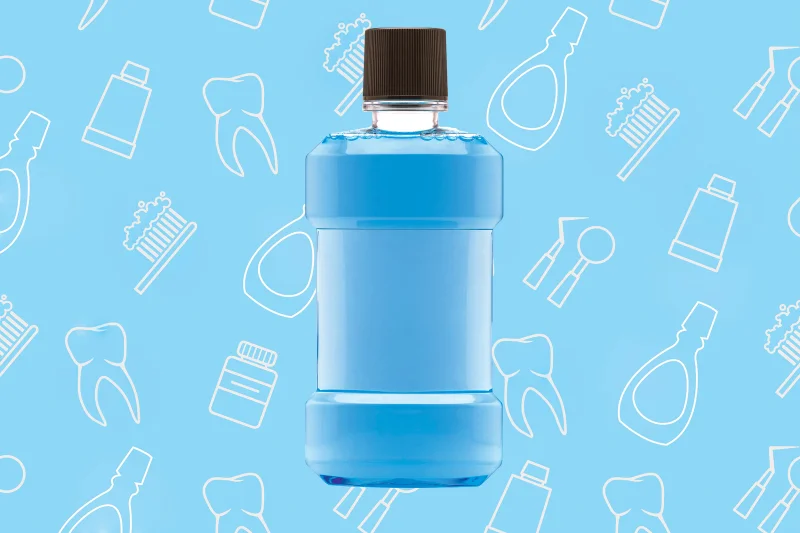Can adults use kids mouthwash? It might sound like a silly question, but many people seem to think that young children’s mouthwash (also known as “mouth rinse”) is not effective and appropriate for adults. This is because the number of ingredients used in kids mouthwash are significant less than what is included in an adult’s mouthwash.
Another noticeable different between a kids mouthwash and the adult variety is that the former comes in more enticing flavor such as bubble gum, watermelon and berry; the latter are often limited to minty and fruity flavors.
There is no set age at kids mouthwash, and it can be used by adults as long as the product ingredients meet safety guidelines. However, there is some truth about the efficacy of kids mouthwash for adults.
The main benefits of using mouthwash are:
- Fight cavities
- Prevent gum diseases such as gingivitis and periodontitis
- Get a fresh breath
- Cure canker sores
- Replenish minerals for the enamel
- Removes loose food particles
The benefits of using a mouthwash are greatly diminished if an adult were to use a kids version. This is due to the lower concentration of the mouthwash as well as the omission of key ingredients such as alcohol. As such, adults are encouraged to use adult mouthwash whenever possible to reap the fullest benefits.
You may be interested in: Does Mouthwash Stain Clothes?
Can Kids Use Adult Mouthwash?
While adults can use kids mouthwash, the reverse is not true. Most adult mouthwash should only be used by kids of age 6 and older. This is due to the fact that adult mouthwash contains alcohol as well as a higher concentration of ingredients than kids mouthwash.
Children often have a hard time swishing mouthwash in their mouth and spitting it. This is because a child’s swallowing reflexes and motor control are not fully developed to do such “complicated” moves. As such, kids mouthwash are manufactured with a mild concentration and do not contain alcohol to avoid complications such as nausea and even intoxication.
Furthermore, kids who are still using their baby teeth or are in the transition to adult teeth have sensitive teeth and gums. Hence it is important to ensure that kids do not overuse dental hygiene products. As a rule of thumb, kids (above the age of 6) using mouthwash should only use it once a day to avoid causing damage to the teeth and gums.
While mouthwash are generally beneficial, inappropriate or excessive use of mouthwash can lead:
- Dry mouth
- Increased sensitivity of the teeth
- Staining of the teeth
- Persistent canker sores
A 2017 study by San Juan Overweight Adults Longitudinal Study (SOALS) also concluded that frequent users of mouthwash (at least twice daily) have a significantly increased risk of pre-diabetes and diabetes compared to less frequent users.
Best Kids Mouthwash
Whether it is choosing a kids mouthwash for you or for a child, it is relatively simple to select the right one as it all boils down to the ingredients in it. In general, a kids mouthwash should be alcohol-free and preferably sweetener-free.
Here are some of the best mouthwash for kids:
- Tom’s of Maine Children Anti-Cavity Flouride Mouthwash (alcohol-free, sweetener-free, artificial color-free)
- ACT Kids Anticavity Flouride Rinse Bubble Gum Mouthwash (alcohol-free)
- Crest Kid’s Anti Cavity Fluoride Mouthwash (alcohol-free)
- Listerine Smart Rinse Kids Anti-Cavity Sodium Flouride Mouthwash (alcohol-free)
- TheraBreath for Kids Dentist Formulated Anti-Cavity Oral Rinse (sweetener-free, artificial color-free)
- hello Oral Care Kids Flouride Free and SLS Free Rinse (alcohol-free, sweetener-free, artificial color-free, SLS-free)
In conclusion, whether or not kids can use adult mouthwash is a topic that is up for debate. While some experts believe that kids can safely use adult mouthwash, others recommend that children use a specially formulated children’s mouthwash. It is also important to note that adult mouthwash often contains higher concentrations of active ingredients such as fluoride and alcohol, which may not be appropriate for young children. A mouthwash specifically formulated for children may be a better option as it will contain lower levels of active ingredients and may be more appealing to a child’s taste.







